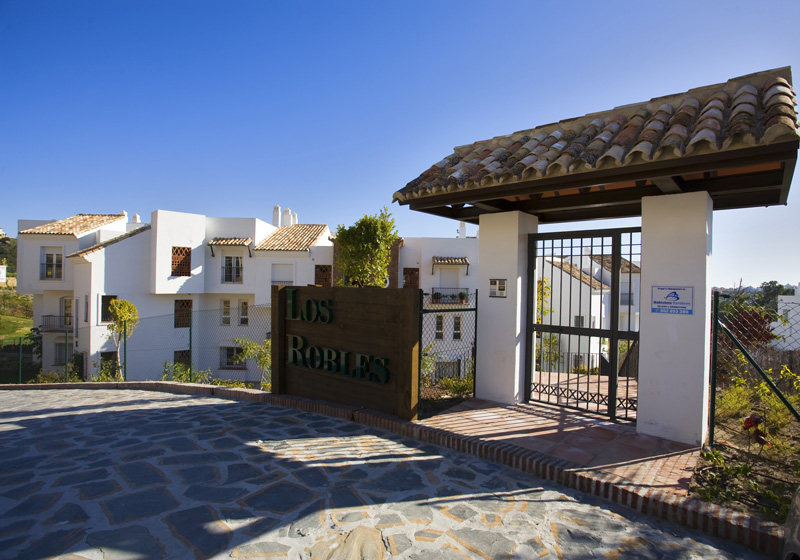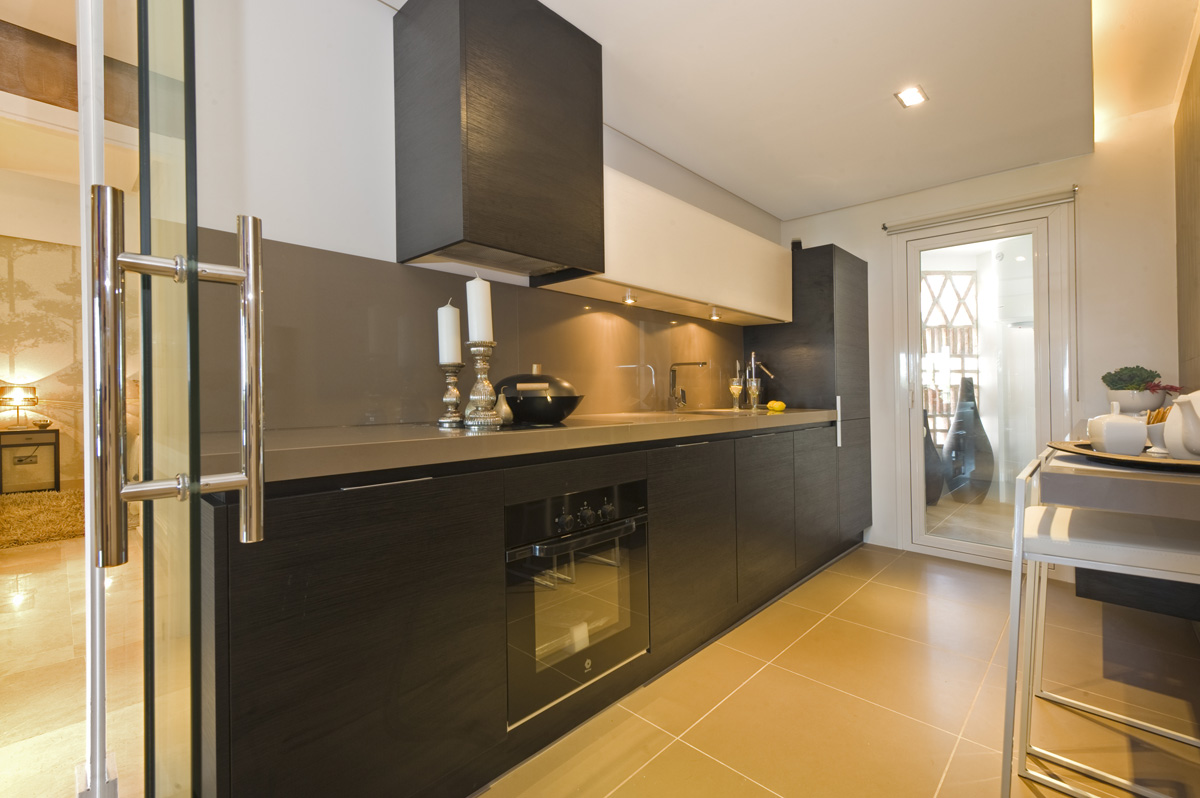Choosing a property
There is now a considerable choice of different types of property available in mainland Spain and the Balearic islands.
When choosing a property it is important to consider whether it will be used as a holiday home, retirement home or permanent residence.
Depending on this it will be important to establish what amenities there are both on site (if buying on a development) and in the neighbouring area. In certain cases, access to health care, availability of public transport, or distance form an international airport may be a consideration.
These are matters, which appear obvious, however, it is surprising how many people commit themselves to a purchase without considering these very relevant questions.
The Contract
There are a number of different types of contract that may be encountered.
1. The reservation agreement.
2. The option contract.
3. The Arras contract or private contract.
4. Investment contracts.
The reservation agreement is a simple contract that has the effect of reserving a particular property for a limited period of time. Typically a reservation period will last no longer than 30 days. On making the reservation a fee will become payable. The reservation fee payable is in general between € 3,000 and € 6,000. If the full private contract is then signed within the reservation period, the reservation fee is deducted from the purchase price agreed. If it is not, then the reservation fee is forfeited and the property is placed back on the market.
The option contract as its name suggests, gives the buyer the “option” to buy a property. However, many sellers particularly in the sale of resale or second hand properties now commonly use options instead of a full contract. Generally, an option contract will give a period within which completion must take place usually, 30 days of the date of the option contract. If the “Escritura de Compraventa” (Title deeds/ Conveyance) is not signed within this period the buyer will forfeit the sum paid under the option contract. Often the deposit paid on signing an option contract is in the region of 30 percent of the full purchase price. The option Contract makes it easier for a seller to rescind the agreement in the event of default, and does not afford a buyer the statutory protections normally given when signing a “ contrato de arras” or full private contract.
The Arras contract or full private contract will usually require a 10 to 20% deposit to be paid. If the seller pulls-out of the transaction he must return double the amount of the deposit received by way of compensation. If the buyer pulls out he will lose the deposit paid.
Once both parties sign the main contract, it is binding. The buyer is then committed to pay the balance of the price, and the seller (once the money has been paid) must transfer ownership to the buyer.
The investment contract is an agreement for the reservation of a future property on a development that has yet to obtain planning consents. These types of agreement are highly speculative in that often they are based on the “vision” of a development company. Often the attraction of such contracts is the resale value of the rights acquired under the agreement. These rights are usually resold prior to the development being completed. If considering such an investment it is essential that detailed legal advice be sought as there are special considerations regarding this type of contract.
How can the purchase be financed?
There are number of possibilities regarding the financing of your purchase.
The first is equity release by remortgage or obtaining a further advance on your main residence. This option does not involve Spain and is a matter arranged with your lenders at home. In this case the property in Spain would in effect be free of mortgages as the finance is secured in your home country.
The second option is to apply for a Mortgage with a Spanish Lending institution, in which case the Spanish property would be valued and ultimately the loan secured on the property in Spain.
The third option is to become “subrogated” or take over an existing mortgage on the property you are buying. Here the bank again would need to approve your application and consider your means and ability to repay. There is no such thing as a “guaranteed mortgage” even when taking over one already in place.
Interest rates on Spanish Mortgages tend to be competitive, although the cost of setting up the loan, registering the charge and removing it on repayment tends to be higher than at home. A typical arrangement fee charged by Spanish banks would be in the region of 1% of the amount borrowed. In addition you need to consider the Notary public fees and land registry fees for the Mortgage deed and cancellation document on repayment.
Enquiries and Searches
Before the main contract is signed and a full deposit paid, it is essential to complete all searches and legal enquiries.
These investigations achieve several objectives:
1. Land registry searches confirm that the sellers own the property being sold.
It is important that the person or persons signing a sale contract are those people who appear as registered owners in the Land Registry.
It is not uncommon for buyers to sign Contracts where the sellers are ordinary property agents and not Attorneys formally appointed. Money is paid to these agents who are not in a position to transfer the property into the name of the buyers. This situation can cause potential problems and the risk of the buyer loosing the deposit paid in certain circumstances.
2. They confirm whether or not there are mortgages or other charges registered against the title.
If this is the case then written in the contract there must be assurances that such charges will be removed prior to completion. On completion, the buyer’s legal representative should ensure that a clear title is being conveyed.
3. Further general enquiries ensure that all planning consents are in order and that no other debts are outstanding against the property.
Completion
The transferring of legal ownership on completion of the purchase takes place in a Notario’s office. The Notario (Notary Public) is a public official who has been appointed to perform certain legal duties in the district. He will prepare the conveyance document (“Escritura de Compraventa”). Although the Notario will generally request a Land Registry search immediately prior to the signing of the Escritura de Compraventa, he does not carry other searches and investigations. He has no responsibility in the event of a misrepresentation by the seller or the buyer. It is also important to note that it is possible to waive the requirement of research being carried out prior to completion if the parties consent. Often the buyer agrees to such a waiver without understanding the implication of this.
Once the Escritura de Compraventa has been signed before the Notario all taxes must be paid and the Escritura de Compraventa should be presented to the Land Registry for registration.
What does it cost?
On average it is important to add between 10 and 11 % of the purchase price to cover the costs of buying the property. This overall figure takes into account the following:
Transfer tax:
This is the equivalent to stamp duty. It is calculated on the purchase price as stated on the Escritura de Compraventa. The rate varies from 6% in the Canary Islands where it is known as Special Canary Island Tax (IGIC), to 7% in most parts of mainland Spain.
Where a property is bought “off plan” or in the process of construction, then VAT will be applicable at a rate of 8% and 1% Stamp duty for mainland Spain.
In the case of purchase of land on its own, a higher rate of VAT may apply.
Notario’s Fee:
The Spanish Notary for drafting the Conveyance, Escritura de Compraventa will make a charge. The level of the fee charged will depend on the length of the document and is assessed in accordance with the notary’s regulatory body’s fee scale. It is wise to allow, approximately, between € 450 and € 600 for this expense
Land Registry Fee:
These fees are charged by the Land Registry for dealing with the registration of the title. It would be sensible to allow approximately between € 400 and € 600.
Plusvalia Tax:
This is the seller’s tax payable to the town hall. It is based on the notional increase of the value of the land, excluding the buildings erected on it, from the date it was bought to the date of sale.
Legal fees:
Our firm’s legal fees are primarily calculated on the value of the property being bought. Generally 1% of the price of the property with a minimum fee applicable in relation to both resale properties and properties bought “off plan” or in the process of being constructed.
We will provide you with a detailed breakdown of all payments to be made prior to you confirming your instructions to act on your behalf. This means you will receive a “ no obligation” estimate at the outset.
Buying from a developer ?
Laws protecting buyers are in place but they must be invoked and insisted upon at an early stage for them to have the effect intended.
Some general points to make in this respect are:
1. Ensure that the plans and building specifications are agreed in advance with the builder and that these are attached to the contract and signed by the parties.
2. By law a bank guarantee or insurance policy should be provided to ensure that if the developer becomes insolvent prior to delivering the property it would be possible for buyers to get their money back.
3. The contract should provide that the property would be delivered only after all the appropriate licenses for occupation have been granted by the Town Hall.
Through my personal and professional experience I have found out that buying from reputable and well established developers can be a guarantee.
Foreigners Identification Numbers (NIE)
It is obligatory for non-resident property owners and investors to obtain a Foreigners identification number. This number is used to identify the individual taxpayers. It is becoming more common for the authorities to ask to have sight of this when dealing with banking matters, importation of furniture or vehicles, or for taking permanent residence in Spain. The application is a relatively simple procedure if you are in Spain. A form must be completed and presented at the local police station with the applicant’s passport and two passport-sized photographs. In many parts of Spain the police authorities require the application for these identification numbers to be made by the interested parties personally.
Banking , Outgoings and Direct debits
It is advisable to open a current account at an early stage of the transaction. This will prove to be useful at a later stage to set up direct debits for payment of regular outgoings on the property such as Rates water electricity and where applicable community of owners fees.
Wills and Estate Planning
Jointly owned property does not pass automatically to the survivor. The “share” in the property will pass in accordance to any instructions that may have been left in a Will. If there is no Will, then the property passes in accordance with the rules of intestacy. For this reasons it is a good idea to make a Spanish Will.
It is not compulsory to have a Spanish Will, however, making one should make the probate formalities in Spain simpler and faster.
In most cases it is possible for a person who is not resident in Spain to dispose of property situated in Spain through a Will prepared in accordance with the law of their home country. However this can lead to complications and further expense in the administration of the Estate.
Further information on making wills in Spain can be provided on request.
Cesar Garzon
Amadeus House, Floral Street, Covent Garden, WC2E 9DP London
Email: [email protected] tel: 0207 8127 007
 Cesar Garzon is a qualified Spanish abogado (lawyer), member of the Madrid Bar association and the principal at Spanish Law Consultants.
Cesar Garzon is a qualified Spanish abogado (lawyer), member of the Madrid Bar association and the principal at Spanish Law Consultants.
Prior to setting up SLC he gained experience with 2 other well known firm of specialists lawyers and was the senior partner at Johnson & Garzon, Solicitors. Cesar qualified as a Spanish abogado from the CEU University in Madrid and the Alcala de Henares University.








